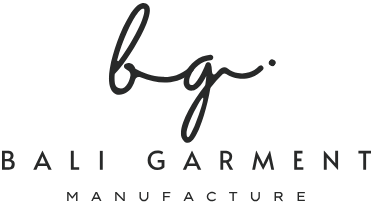Understanding the Intersection of Mind and Wardrobe
Fashion is more than just fabric and trends; it’s a complex interplay of psychology, culture, and personal identity. From the way we choose our outfits to the brands we support, fashion serves as a medium through which we express ourselves, communicate with others, and even navigate social structures. This article delves into the psychological aspects of fashion, exploring how our choices are influenced by identity, emotions, and societal factors.
The Role of Identity in Fashion
Personal Identity
Fashion is a powerful tool for self-expression. The clothes we wear often reflect our personalities, beliefs, and values. Psychological theories suggest that clothing can serve as an extension of the self, a concept rooted in the idea of “enclothed cognition.” This theory posits that the symbolic meaning of clothing can influence our thoughts, feelings, and behaviors. For example, wearing formal attire might increase confidence and productivity, while casual wear might foster relaxation.
Social Identity
Beyond personal expression, fashion is integral to social identity. Social identity theory posits that individuals derive part of their self-concept from their perceived membership in social groups. Fashion can signal belonging to specific cultures, communities, or social classes. For instance, subcultures such as goth, punk, or hip-hop each have distinctive styles that communicate group membership and values. The clothes we choose can reinforce our social identities, making fashion a potent social signaling tool.
Gender and Fashion
Gender plays a significant role in how individuals engage with fashion. Traditionally, fashion has been a means through which gender norms are expressed and contested. Women’s fashion often emphasizes aesthetics, while men’s fashion has historically leaned toward functionality. However, contemporary fashion increasingly blurs these lines, as gender-neutral and androgynous styles gain popularity. This shift reflects broader societal changes in attitudes toward gender identity, challenging conventional norms and allowing for greater self-expression.
The Emotional Impact of Fashion
Mood and Self-Perception
Our clothing choices can significantly influence our emotions and self-perception. Wearing outfits that make us feel good can boost our mood and self-esteem. Conversely, uncomfortable or unflattering clothing can lead to feelings of insecurity or anxiety. Studies have shown that individuals who dress well—according to their personal style—report higher levels of happiness and self-satisfaction.
Fashion as Therapy
Fashion can also serve therapeutic purposes. The act of shopping or dressing can be a form of escapism, providing individuals with a sense of control and creativity. Fashion therapy, a growing field, harnesses the power of clothing to enhance mental well-being. It involves using fashion as a medium to explore self-identity, boost confidence, and develop personal style, particularly in therapeutic settings for individuals dealing with trauma or low self-esteem.
Nostalgia and Memory
Fashion often evokes nostalgia, reminding individuals of past experiences and identities. Certain styles can bring back memories of specific periods in one’s life, creating emotional connections to the past. This nostalgic aspect of fashion can be comforting, serving as a reminder of cherished moments or identities, and influencing contemporary style choices.
Societal Influences on Fashion Choices
Cultural Context
Fashion is heavily influenced by cultural context. Different cultures have distinct styles that reflect their histories, traditions, and values. Globalization has led to a blending of styles, creating hybrid fashion identities. However, this also raises questions about cultural appropriation, where elements of one culture are used by another, often without understanding their significance.
Media and Celebrity Influence
The media plays a crucial role in shaping fashion trends and consumer behavior. Fashion magazines, social media platforms, and celebrities can significantly influence what is considered stylish. The rise of influencer culture has democratized fashion, allowing individuals to curate their own styles and connect with like-minded communities. However, this can also lead to unrealistic beauty standards and pressure to conform, affecting mental health and self-esteem.
Economic Factors
Economic conditions also shape fashion trends. During times of economic prosperity, consumers may be more willing to invest in high-quality, designer items, while economic downturns often lead to a rise in thrift shopping and a focus on sustainable fashion. The growing awareness of fast fashion’s environmental impact has spurred a movement toward sustainable and ethical fashion choices, reflecting a shift in consumer values.
The Future of Fashion Psychology
As we move into the future, the relationship between psychology and fashion will likely continue to evolve. Advances in technology, such as virtual reality and augmented reality, are changing how consumers interact with fashion. Virtual fitting rooms and digital fashion shows are becoming more prevalent, altering the shopping experience and how individuals perceive their fashion choices.
Sustainability and Conscious Consumerism
The growing emphasis on sustainability and ethical consumption is reshaping fashion psychology. Consumers are increasingly aware of the environmental and social implications of their clothing choices. This consciousness not only influences purchasing behavior but also fosters a deeper connection to personal values and identity, as individuals seek to align their fashion choices with their beliefs.
Inclusive Fashion
The push for inclusivity in fashion is also gaining momentum. Brands are recognizing the importance of representing diverse body types, ethnicities, and gender identities. This shift towards inclusivity not only broadens the definition of beauty but also empowers individuals to embrace their unique styles, reinforcing the idea that fashion should be accessible to everyone.




